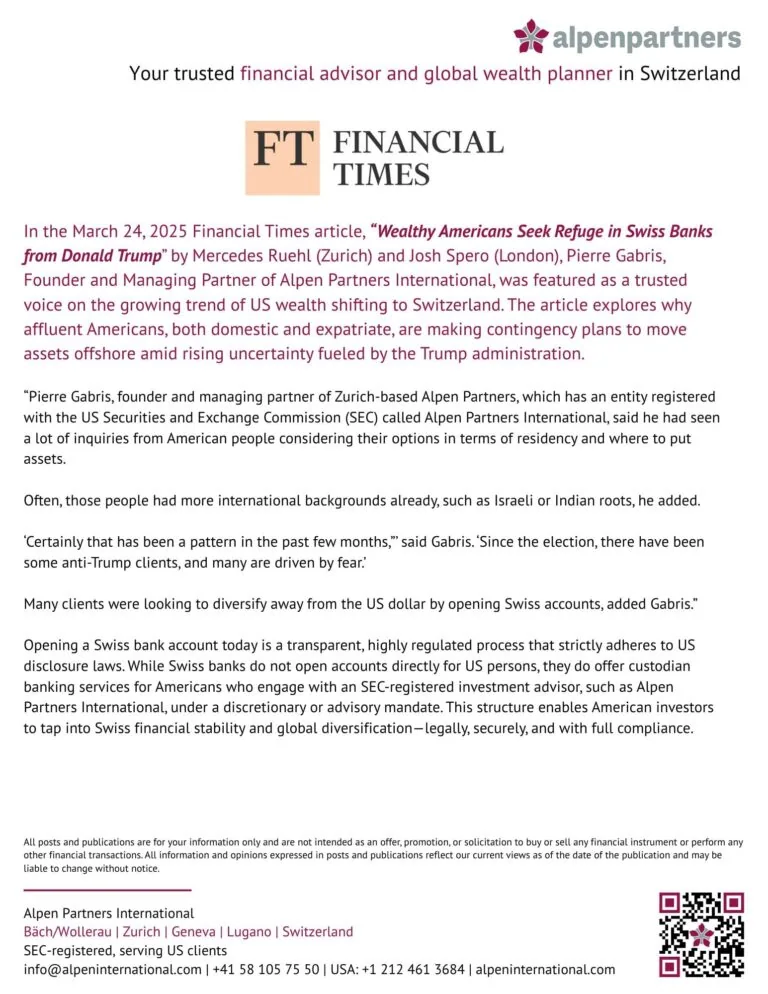
Yikes! California’s Proposed Billionaire Tax!
Why should a second residency be prepared early? Periods of political change, regulatory uncertainty, and accelerated wealth creation increasingly influenc...
February 27, 2026


Why should a second residency be prepared early? Periods of political change, regulatory uncertainty, and accelerated wealth creation increasingly influenc...
February 27, 2026

Filter

Why should a second residency be prepared early? Periods of political change, regulatory uncertainty, and accelerated wealth creation increasingly influence how founders, investors, and families evaluate…
February 27, 2026
Investing in or borrowing Swiss francs (CHF) in a 0% interest rate environment can seem boring at first glance. From our perspective, however, CHF strategies are…
February 20, 2026
For American investors looking to hold assets in Switzerland and diversify internationally, regulatory access is only part of the equation. Equally important is the structure behind…
February 2, 2026
Retirement planning increasingly intersects with cross-border wealth management and residency decisions. From a Swiss-based advisory perspective, where one retires can influence lifestyle, taxation, healthcare access, and…
January 27, 2026
As 2026 unfolds, global investors face a landscape defined less by crisis response and more by strategic recalibration. Inflation has moderated, interest rates have normalized, and…
January 16, 2026
As we look ahead, the coming year is less about bold predictions and more about disciplined progress. For globally minded investors and families, the focus is…
January 16, 2026
A notable increase This year, we have seen a notable increase in inquiries from American investors seeking clarity, stability, and jurisdictional diversification in their long-term wealth…
January 13, 2026Loading news...

GDPR Privacy Policy: This site is protected by reCAPTCHA and the Google Privacy Policy and Terms of Service apply.
Website: Agenza GmbH
